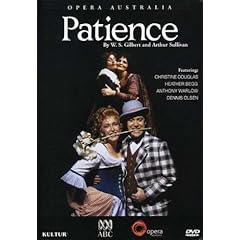What my students really think of Contract law, via Courtoons:
 |
…
the Irish for rights

 On the monkeys-and-typewriters principle, I suppose it was inevitable that Kevin Myers would eventually write something with which I would agree. He did, today, in the Irish Independent:
On the monkeys-and-typewriters principle, I suppose it was inevitable that Kevin Myers would eventually write something with which I would agree. He did, today, in the Irish Independent:
I have the right not merely to offend people, but to intend to
… The Ahern law on blasphemy must be the first law ever whose instigator is desperately hoping that it will never be invoked. Its potency depends not upon any legal definition on what blasphemy actually consists of, but solely on the “outrage” that the remark in question might intentionally cause.
… Well, frankly, I think I have the right not merely to offend people, but the right to intend to do so. It is up to them, and their personal capacity to control their emotions, as to whether or not they are outraged. …
Polemical as always, and trenchant, he is making much the same point as I essayed here and here.
On the same principle, it was probably just as inevitable that I would at some stage feel a little sorry for Gerry Ryan. I did, today, when I learned that he had been the subject of a complaint to the Broadcasting Complaints Commission for wondering whether it would be considered blasphemous if someone said on air that “God is a bollocks”.…
 I love this website: Typography for Lawyers. Typography is the visual component of the written word, and even though the legal profession depends heavily on writing, legal typography is often poor. So, Matthew Butterick has started that site as a guide to typography for lawyers – in his view, good typography makes written documents more professional and more persuasive. He gives a wonderful example of where bad typography led to serious problems (I won’t spoil the effect, click through to find out for yourself); and he gives very sage advice about using the Times font (advice which I only occasionally take, but then, do as he says, not as I do!). This is a wonderful website. Go, read, learn, enjoy.…
I love this website: Typography for Lawyers. Typography is the visual component of the written word, and even though the legal profession depends heavily on writing, legal typography is often poor. So, Matthew Butterick has started that site as a guide to typography for lawyers – in his view, good typography makes written documents more professional and more persuasive. He gives a wonderful example of where bad typography led to serious problems (I won’t spoil the effect, click through to find out for yourself); and he gives very sage advice about using the Times font (advice which I only occasionally take, but then, do as he says, not as I do!). This is a wonderful website. Go, read, learn, enjoy.…
EU law has thrown up some very abstruse issues, none more so that the compatibility of national VAT regimes with European VAT Directives. Where there has been a charge to tax pursuant to national rules which infringe EU law, then that overpayment of tax can be recovered.
 Sometimes the issue concerns a relatively straightforward overpayment. For example, the Irish Times reported a little while ago that GE Capital Woodchester Ltd has brought legal proceedings against the Revenue claiming it has overpaid some €19 million due to the State’s alleged failure properly to implement an EU directive related to the VAT treatment of hire purchase transactions. The principle of restitution of overpaid taxes is well established at Irish law (see O’Rourke v The Revenue Commissioners [1996] 2 IR 1 (HC, Keane J) and Harris v Quigley [2006] 1 IR 165, [2006] 1 ILRM 401, [2005] IESC 79 (01 December 2005) following Woolwich Building Society v Inland Revenue Commissioners [1993] AC 70 (HL) (pdf); see also In re Article 26 and the Health (Amendment) (No 2) Bill, 2004 [2005] IESC 7 (16 February 2005)) so the main question in the Woodchester proceedings (at least as they appear from the newspaper report) will be whether the overpayment is in fact made out.…
Sometimes the issue concerns a relatively straightforward overpayment. For example, the Irish Times reported a little while ago that GE Capital Woodchester Ltd has brought legal proceedings against the Revenue claiming it has overpaid some €19 million due to the State’s alleged failure properly to implement an EU directive related to the VAT treatment of hire purchase transactions. The principle of restitution of overpaid taxes is well established at Irish law (see O’Rourke v The Revenue Commissioners [1996] 2 IR 1 (HC, Keane J) and Harris v Quigley [2006] 1 IR 165, [2006] 1 ILRM 401, [2005] IESC 79 (01 December 2005) following Woolwich Building Society v Inland Revenue Commissioners [1993] AC 70 (HL) (pdf); see also In re Article 26 and the Health (Amendment) (No 2) Bill, 2004 [2005] IESC 7 (16 February 2005)) so the main question in the Woodchester proceedings (at least as they appear from the newspaper report) will be whether the overpayment is in fact made out.…
 From the Irish Times breaking news site:
From the Irish Times breaking news site:
President McAleese signs controversial Bills into law
President Mary McAleese has this morning signed the Defamation Bill 2006 and the Criminal Justice (Amendment) Bill 2009 into law. …
Updates: from RTÉ news: President signs controversial bills into law; and from the Irish Times: Ahern welcomes Bills’ enactment; see also Belfast Telegraph | BreakingNews.ie | CCJHR blog | IrelandOnline | Irish Election | New Humanist | New York Times | Press Association | Slugger O’Toole | Tribune.ie. Further update: it’s now listed on the official list of Acts signed by President McAleese, as the Defamation Act, 2009 (No 31 of 2009) / An tAcht Um Chlúmhilleadh, 2009 (Uimhir 31 de 2009).
In a press release, the Minister for Justice welcomed both enactments, and he had this to say about the new Defamation Act, 2009:
Modernisation of our Defamation law is now complete on the enactment of the Bill. I believe the legislation in what is a complex area strikes the right balance in the public interest.
For Michael Nugent, the campaign to repeal the new blasphemy law begins now.…
 For anyone who is as impatient as I am to find out what President McAleese has decided after her meeting this evening with the Council of State, the RTÉ News website is reporting:
For anyone who is as impatient as I am to find out what President McAleese has decided after her meeting this evening with the Council of State, the RTÉ News website is reporting:
The meeting of the Council of State called by the President ended at around 10pm. … The President has indicated she will announce her decisions tomorrow morning. …
Update (23 July 2009): Irish Independent | Irish Times here and here | Jason Walsh here and here | Slugger O’Toole.
And so we wait. Patiently?
Bonus link: meanwhile, the RTÉ news report has a link to the following story from a few weeks ago: OSCE argues against blasphemy law. The Organization for Security and Co-operation in Europe (OSCE) press release to which that story refers is headed: OSCE media freedom representative welcomes Irish draft law decriminalizing libel, asks to drop ‘blasphemous libel’, and begins (with added links):
…The OSCE Representative on Freedom of the Media, Miklos Haraszti, welcomed today the Irish Parliament’s final preparations to decriminalize defamation, but warned that the proposal to introduce a new article on ‘blasphemous libel’ risked jeopardizing OSCE media freedom commitments. …
 In today’s Irish Times, a piece by yours truly under the above headline:
In today’s Irish Times, a piece by yours truly under the above headline:
Blasphemy provisions clash with Constitution
The President has very few unconstrained powers, and the Council of State is convened only rarely, but this evening they will all move centre stage, when the Council convenes to advise the President whether to refer two controversial Bills to the Supreme Court. Whatever she does about the Criminal Justice (Amendment) Bill, 2009, she should certainly refer the blasphemy provisions of the Defamation Bill, 2006 …
Read all about it here (it’s a development of my argument here).
The cases I mention in the piece are:
 No, at least so far as the law is concerned. But after its initial publication in 1928, it was not until the 1960s that litigation in the US and the UK allowed it to become generally available. An op-ed by Fred Kaplan in the today’s New York Times, entitled The Day Obscenity Became Art, (with added links) tells us that
No, at least so far as the law is concerned. But after its initial publication in 1928, it was not until the 1960s that litigation in the US and the UK allowed it to become generally available. An op-ed by Fred Kaplan in the today’s New York Times, entitled The Day Obscenity Became Art, (with added links) tells us that
…today is the 50th anniversary of the court ruling that overturned America’s obscenity laws, setting off an explosion of free speech — … The historic case began on May 15, 1959, when Barney Rosset, the publisher of Grove Press, sued the Post Office for confiscating copies of the uncensored version of D. H. Lawrence’s 1928 novel “Lady Chatterley’s Lover,” which had long been banned for its graphic sex scenes.
… Mr. Rosset hired a lawyer named Charles Rembar, … [who] presented “Lady Chatterley” as a novel of ideas that inveighed against sex without love, the mechanization of industrial life and morbid hypocrisy. … On July 21, 1959, Judge Bryan ruled in favor of Grove Press and ordered the Post Office to lift all restrictions on sending copies of “Lady Chatterley’s Lover” through the mail.